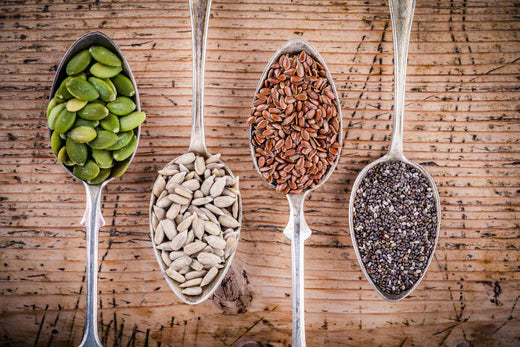
Nutrient-Dense Edible Seeds That Your Daily Diet Needs
Edible seeds are nutrient-rich kernels that provide essential vitamins and minerals to support the daily functioning of our body. These edible seeds can be easily incorporated in our daily diet as snacks, toppings on salads or soups, and serve as a healthy addition to a variety of dishes. Apart from being nutritionally-dense, these edible seeds add a crunchy texture and nutty flavor to various recipes.
Each variety of edible seeds is made up of vital nutrients that cater to a number of nutritional requirements of the body.
Choose from our wide range of edible seeds which includes the following:
Sunflower Seeds
Sunflower seeds are a rich source of protein, antioxidants, zinc, folate, selenium and vitamin B6 and vitamin E, which primarily contribute to the growth and repair of body cells and support the functioning of the nervous system.
In addition to this, sunflower seeds contain healthy fats that prevent the body from developing severe health ailments, boost immunity and regulate blood sugar levels of the body. Sunflower seeds also offer other benefits which include nourishment of hair, skin and assistance in weight loss.
Nutritional Value per 30g of Sunflower Seeds accounts for:
|
Calories |
163 |
|
Protein |
5.5 g |
|
Carbs |
6.5 g |
|
Fiber |
3 g |
|
Fats |
14 g |
How to eat Sunflower Seeds:
- Add them as a crispy topping to salads, soups and smoothies.
- Blend with oatmeal, porridges or muesli for your breakfast bowl.
- Use them with vegetables in dishes as well as add them to gravies.
- Prepare baked delicacies and granola bars using sunflower seeds.
- Roast them gently and munch them raw as a tasty snack and add them to trail mixes.
Pumpkin Seeds
Pumpkin seeds are filled with vital nutrients such as magnesium, zinc, protein and antioxidants. Health benefits of pumpkin seeds include regulating blood sugar levels, improving prostate, bladder and heart health, apart from promoting better sleep quality. Consuming them on a regular basis also reduces the risk of cancer.
Nutritional Value per 30g of Pumpkin Seeds accounts for:
|
Calories |
151 |
|
Protein |
7 g |
|
Carbs |
5 g |
|
Fiber |
1.7 g |
|
Fats |
13 g |
How to eat pumpkin seeds:
- Pumpkin seeds serve as a tasty topping on salads, breakfast bowls, breads and multi-grain crackers.
- Roasted pumpkin seeds and toasting pumpkin seeds into chili makes it a spicy snack to grab.
- Pumpkin seeds are a great addition to trail mixes, smoothies and baked delicacies.
- Pumpkin seeds are also used to prepare pumpkin spread or sauce.
Flax Seeds
One of the tiniest seeds that are packed with nutrients that include omega-3 fatty acids, antioxidants, dietary fiber and protein. Flax seeds offer numerous benefits to the body that include controlling cholesterol levels, lowering blood pressure, helping in weight loss management and regulating blood sugar levels. Known to be one of the most versatile superfoods, it can be easily incorporated in our regular diet.
Nutritional Value per 7g of Flax Seeds accounts for:
|
Calories |
37 |
|
Protein |
1.3g |
|
Carbs |
2 g |
|
Fiber |
1.9 g |
|
Fats |
3 g |
How to consume flax seeds:
- Drinking flaxseed water works wonders for your body.
- Ground flaxseed can be sprinkled on salads, dishes or used in chutneys.
- Flaxseed is used to make a range of baking delicacies including flaxseed bread
- Flax seeds are used to prepare flaxseed eggs which are a healthy and vegan substitute to eggs.
- Flaxseed is popularly added to yoghurt, fruit bowl and breakfast as it acts as a great taste enhancer.
Watermelon Seeds
Watermelon seeds have a high mineral-density and are proven to be a rich source of multivitamins. Health benefits of watermelon seeds include controlling blood sugar, regulating blood pressure, boosting immunity and metabolism. Magnesium-rich watermelon seeds improve bone health and strengthen cognitive capabilities. These seeds are an excellent source of omega-3 fatty acids.
Nutritional Value per 30g of Watermelon Seeds accounts for:
|
Calories |
158 |
|
Protein |
8g |
|
Carbs |
4.34g |
|
Fats |
13.4g |
How to eat Watermelon seeds:
- Roasted and sprouted watermelon seeds serve as a tasty and healthy snack.
- Watermelon seeds can be easily incorporated into smoothies, breakfast bowls and salads for a crunchy twist.
- Watermelon seeds can be ground to make sauces and chutneys.
- Add them to trail mixes and granola bars for a nutritious boost.
Edible seeds are a crunchy, yummy and nutritious addition to our balanced diet. They are a natural source of vitamins and minerals needed to meet our daily intake of essential nutrients. Choose from a range of organic edible seeds offered by Nourish You that includes sunflower seeds, watermelon seeds, pumpkin seeds, flax seeds and chia seeds.


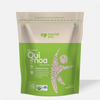
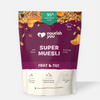
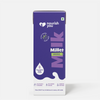
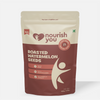
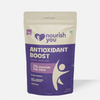
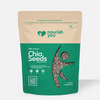
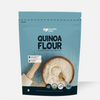

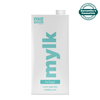
Leave a comment